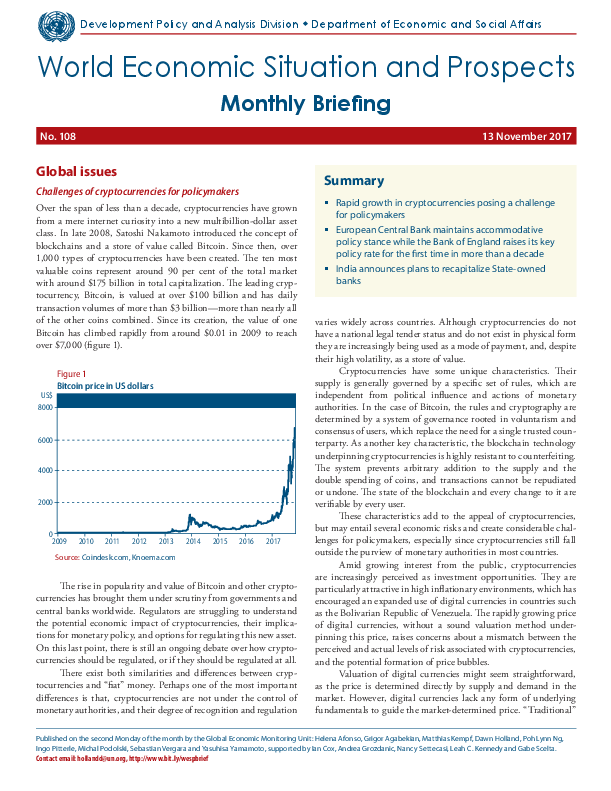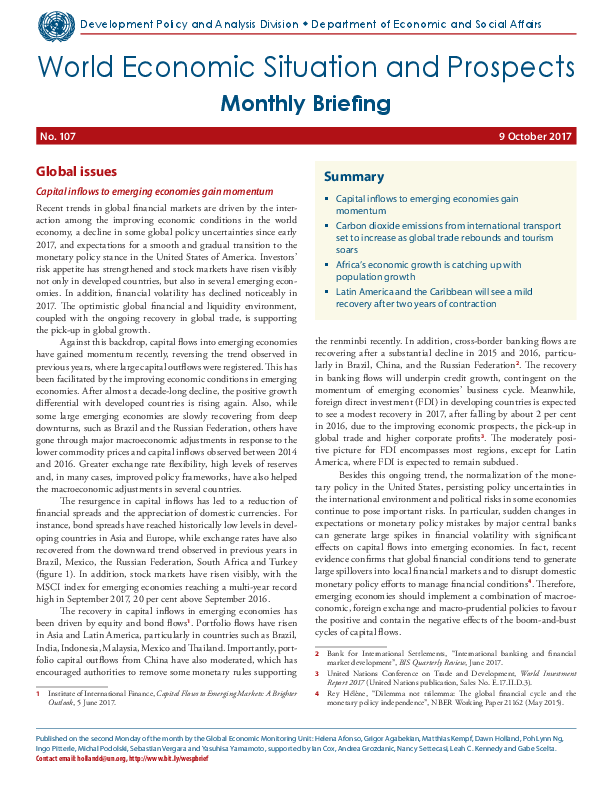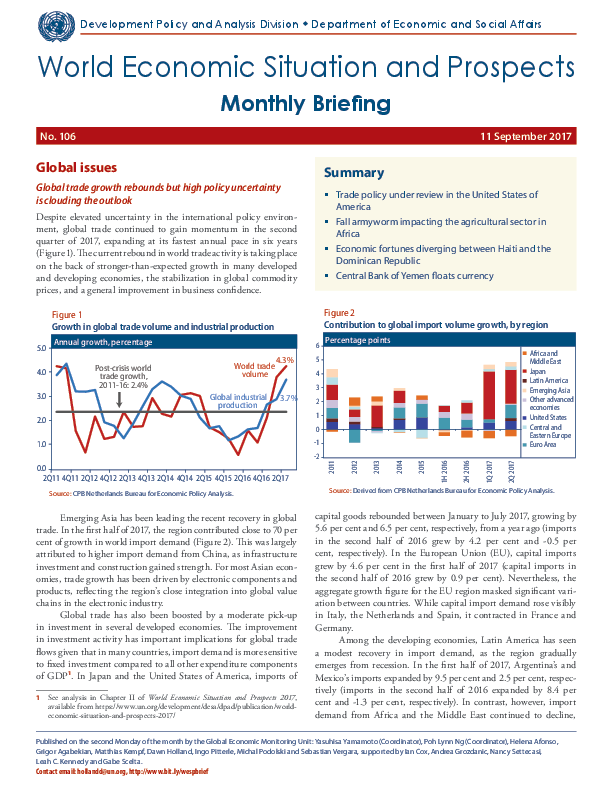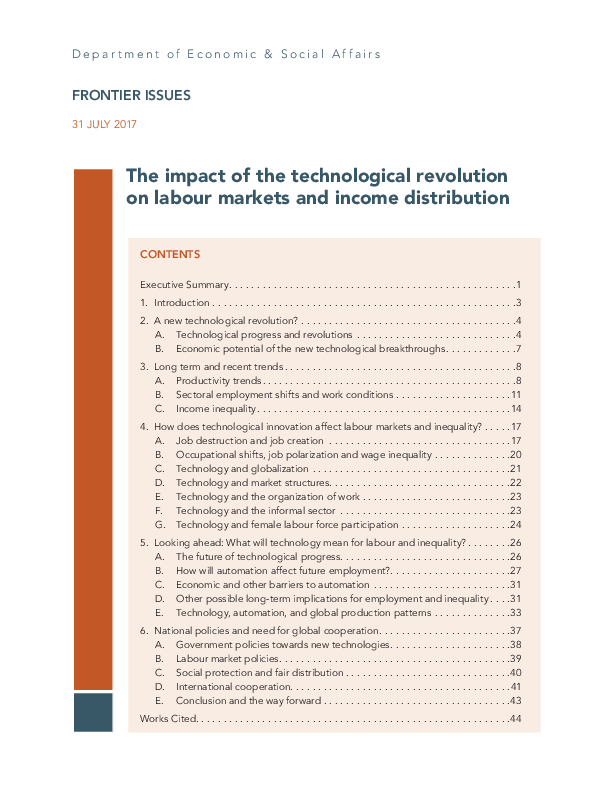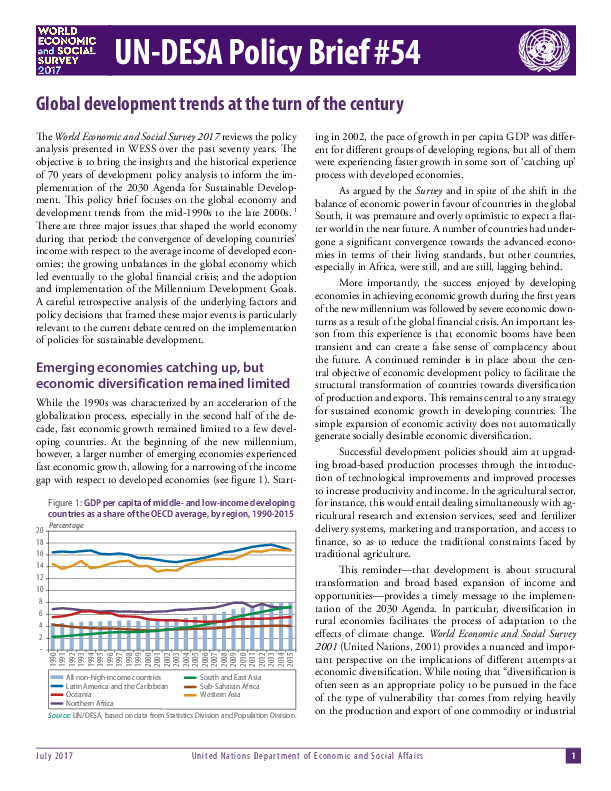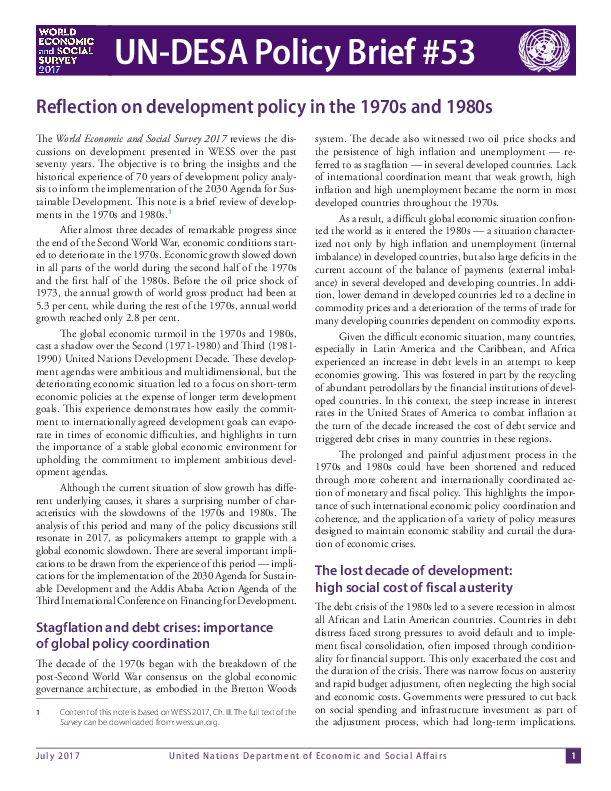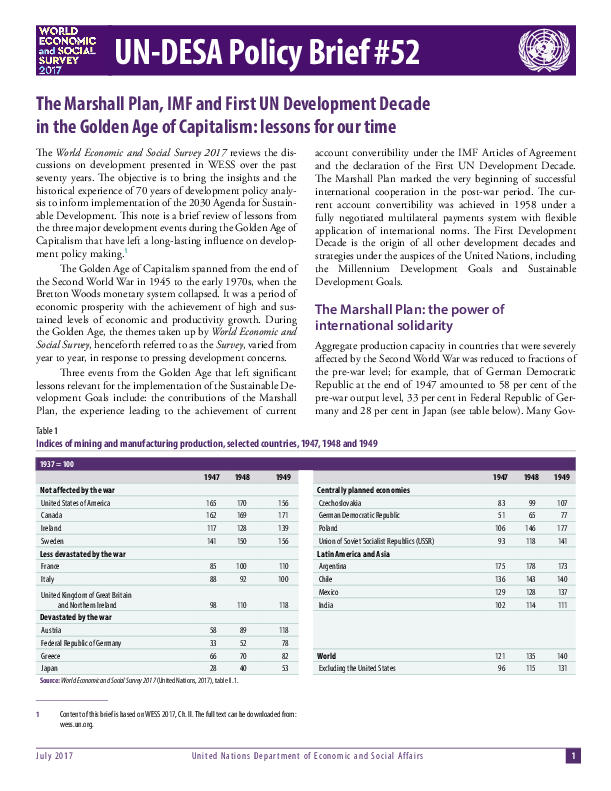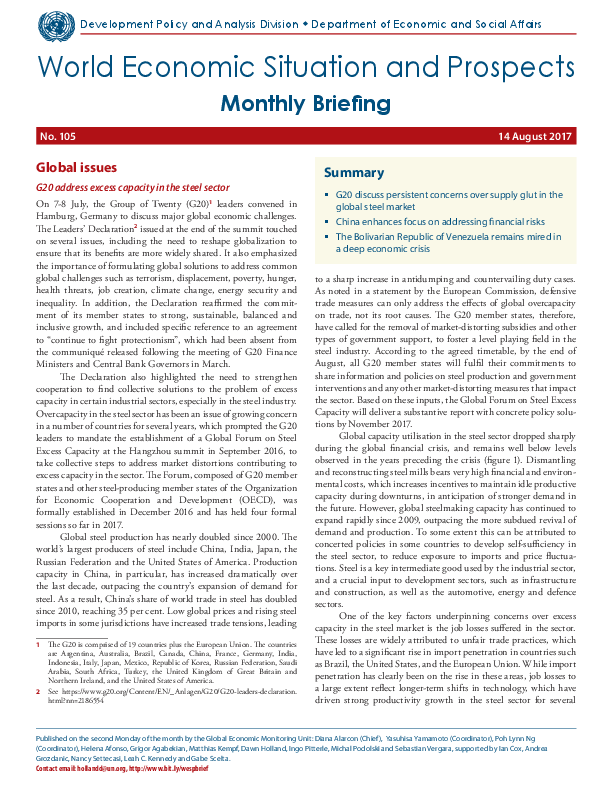Publications
Displaying 11 - 20 of 62
Carbon dioxide emissions from international transport set to increase as global trade rebounds and tourism soars
Africa?s economic growth is catching up with population growth
Latin America and the Caribbean will see a mild recovery after two years of contraction
???? ,?
Fall armyworm impacting the agricultural sector in Africa
Economic fortunes diverging between Haiti and the Dominican Republic
Central Bank of Yemen floats currency
Diplomatic rift poses economic challenges for Qatar
Fragile and uneven economic recovery in Africa and South America
 Welcome to the United Nations
Welcome to the United Nations

